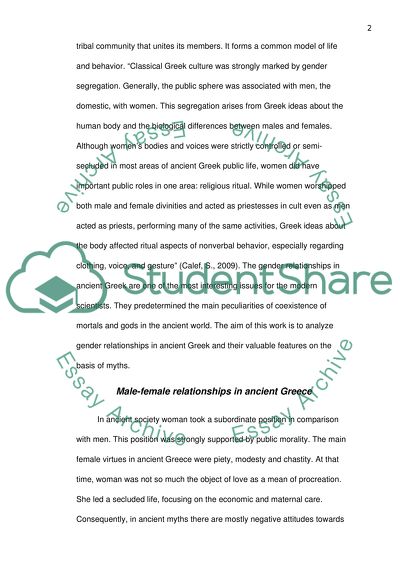Cite this document
(“Gendering the Mythic World - Greek myth Essay Example | Topics and Well Written Essays - 2250 words”, n.d.)
Gendering the Mythic World - Greek myth Essay Example | Topics and Well Written Essays - 2250 words. Retrieved from https://studentshare.org/miscellaneous/1664073-gendering-the-mythic-world-greek-myth
Gendering the Mythic World - Greek myth Essay Example | Topics and Well Written Essays - 2250 words. Retrieved from https://studentshare.org/miscellaneous/1664073-gendering-the-mythic-world-greek-myth
(Gendering the Mythic World - Greek Myth Essay Example | Topics and Well Written Essays - 2250 Words)
Gendering the Mythic World - Greek Myth Essay Example | Topics and Well Written Essays - 2250 Words. https://studentshare.org/miscellaneous/1664073-gendering-the-mythic-world-greek-myth.
Gendering the Mythic World - Greek Myth Essay Example | Topics and Well Written Essays - 2250 Words. https://studentshare.org/miscellaneous/1664073-gendering-the-mythic-world-greek-myth.
“Gendering the Mythic World - Greek Myth Essay Example | Topics and Well Written Essays - 2250 Words”, n.d. https://studentshare.org/miscellaneous/1664073-gendering-the-mythic-world-greek-myth.


